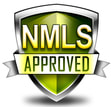Buy Your Next Home and Move Up

Your family is growing… You got a great promotion… The value of your current home has skyrocketed… They’re all good reasons for making a move. Maybe the kids have left home—or you just want to try someplace different. No matter why you’re thinking about moving, you’ll want to start by talking with a professional real estate agent, who can give you an idea of what your current home might be worth and any changes that might make your home more marketable. Staging your home—adding a fresh coat of paint, cleaning out clutter and arranging furnishings to show each room at its best—can often help you get a better price. So can sprucing up landscaping to add “curb appeal”. When you list your home with an agent, that individual works on your behalf to market your home to potential buyers—so it’s a very important relationship. Be sure to select someone with a track record of success in your area—and a solid knowledge of pricing in your local market. Real estate agents who are affiliated with larger firms can promote your property to colleagues or peers in their organization who might have clients who are looking for a home just like the one you want to sell. It’s also a good idea to get preapproved for a mortgage, so you know how much you’ll have to spend when you start looking for you next home. The agent who is selling your home can help you find just the right place, or you may want to work with someone who specializes as a buyer’s agent.
Contact First Choice Financial TODAY to speak with a licensed professional mortgage consultant. We can help you determine how much equity you have available and how much you can afford to spend on a new home purchase.
Contact First Choice Financial TODAY to speak with a licensed professional mortgage consultant. We can help you determine how much equity you have available and how much you can afford to spend on a new home purchase.
Buy a Vacation Home

The mountains… The shore… A secluded island in the Caribbean… It doesn’t really matter where you go to relax. If you love a place enough to return year after year, it may make sense to buy a vacation home you can call your own. In many cases, you can put the equity you’ve earned in your primary residence to work to help make your vacation dream come true.
Here are some considerations to keep in mind when you’re thinking about buying a vacation home:
Location: Is it close enough that you’ll be able to use the property often? You’ll pay a premium for a home in a vacation hot spot, but you may command a higher rental price if you want to offset some of your costs.
Repairs: If the house needs work, consider whether you’ll earn your investment back. Updates to kitchens, bathrooms, HVAC systems and roofs can all be costly.
Maintenance: Maintaining the property helps protect your investment. If you don’t live nearby, you’ll need to contract with someone to keep the house in good shape and looking lived-in.
Tax implications: You can deduct mortgage interest on a second home—that is, if you use it at least 14 days each year or one day for every 10 days it’s rented. Be sure to always consult your tax advisor to double check current regulatory tax guidelines.
Contact First Choice Financial TODAY to speak with a licensed professional mortgage consultant. We can help you determine how much equity you have available and how much vacation home you can afford.
Here are some considerations to keep in mind when you’re thinking about buying a vacation home:
Location: Is it close enough that you’ll be able to use the property often? You’ll pay a premium for a home in a vacation hot spot, but you may command a higher rental price if you want to offset some of your costs.
Repairs: If the house needs work, consider whether you’ll earn your investment back. Updates to kitchens, bathrooms, HVAC systems and roofs can all be costly.
Maintenance: Maintaining the property helps protect your investment. If you don’t live nearby, you’ll need to contract with someone to keep the house in good shape and looking lived-in.
Tax implications: You can deduct mortgage interest on a second home—that is, if you use it at least 14 days each year or one day for every 10 days it’s rented. Be sure to always consult your tax advisor to double check current regulatory tax guidelines.
Contact First Choice Financial TODAY to speak with a licensed professional mortgage consultant. We can help you determine how much equity you have available and how much vacation home you can afford.
Buy an Investment Property

Decade after decade, real estate has proven to be a solid investment. A rental property can generate cash flow in addition to building equity. Owning investment properties also may offer certain tax advantages.
Here are some issues to consider when you’re thinking about investing in real estate:
Type: Do you want a duplex, triplex or quad that you can live in yourself while renting other units? Or do you want to buy a condo, townhouse or single-family home? Do you plan to rent the property out year-round, or use it as a vacation rental? If the latter, will you also use the property yourself?
Location: You’ll pay a premium for a property in a more desirable neighborhood or a vacation hot spot, but you may command a higher rental price.
Repairs: If the house needs work, consider whether you’ll earn your investment back. Updates to kitchens, bathrooms, HVAC systems and roofs can all be costly.
Maintenance: Maintaining the property helps protect your investment. If you don’t live nearby, you’ll need to contract with someone to keep the house in good shape.
Local landlord/tenant laws: You’ll need to do some research on local regulations, particularly on rent control or other laws that could affect your ability to cover your mortgage payment, property taxes and expenses. Consult your real estate attorney.
Tax implications: You can deduct operating expenses that exceed the amount of rent you collect on an investment property, and you can depreciate an investment property. You can deduct losses on the sale of an investment property, but you must pay capital gains tax on profits. The implications may change if you live in the home. Consult your tax advisor.
Contact First Choice Financial TODAY to speak with a licensed professional mortgage consultant. We can help you determine how much equity you have available and how much you can afford to invest in a new property.
Here are some issues to consider when you’re thinking about investing in real estate:
Type: Do you want a duplex, triplex or quad that you can live in yourself while renting other units? Or do you want to buy a condo, townhouse or single-family home? Do you plan to rent the property out year-round, or use it as a vacation rental? If the latter, will you also use the property yourself?
Location: You’ll pay a premium for a property in a more desirable neighborhood or a vacation hot spot, but you may command a higher rental price.
Repairs: If the house needs work, consider whether you’ll earn your investment back. Updates to kitchens, bathrooms, HVAC systems and roofs can all be costly.
Maintenance: Maintaining the property helps protect your investment. If you don’t live nearby, you’ll need to contract with someone to keep the house in good shape.
Local landlord/tenant laws: You’ll need to do some research on local regulations, particularly on rent control or other laws that could affect your ability to cover your mortgage payment, property taxes and expenses. Consult your real estate attorney.
Tax implications: You can deduct operating expenses that exceed the amount of rent you collect on an investment property, and you can depreciate an investment property. You can deduct losses on the sale of an investment property, but you must pay capital gains tax on profits. The implications may change if you live in the home. Consult your tax advisor.
Contact First Choice Financial TODAY to speak with a licensed professional mortgage consultant. We can help you determine how much equity you have available and how much you can afford to invest in a new property.
Build a New Home

Your dream house won’t come from a cookie cutter. You have a vision of a home that is uniquely your own. Maybe your looking for a lot, or maybe you already own the perfect piece of land—and you’re just looking for an architect and a builder who can make your vision a reality. Financing new construction differs from other types of mortgages. A construction-to-permanent loan, or an owner-builder loan, usually has two components. Initially, the loan covers the costs of construction materials and labor—usually for a predetermined period of time. When the construction is finished, the loan converts to a mortgage on the home. The first step in obtaining construction financing is to qualify for the long-term mortgage. Then, a mortgage consultant with construction loan experience will review your plans—blueprints, contractors and suppliers, etc.—before granting the short-term loan to cover your construction budget. A percentage of this is usually secured by cash and/or land.
Contact First Choice Financial TODAY to speak with a licensed professional mortgage consultant. We can provide more detailed information on our Land/Construction, and Construction-to-Permanent loan programs and help you determine which is right for you.
Contact First Choice Financial TODAY to speak with a licensed professional mortgage consultant. We can provide more detailed information on our Land/Construction, and Construction-to-Permanent loan programs and help you determine which is right for you.
First Choice Financial, Inc. 261 N University Drive Suite 500 Plantation FL 33324 954-317-0573 NMSL ID 815955 © Copyright 2012








